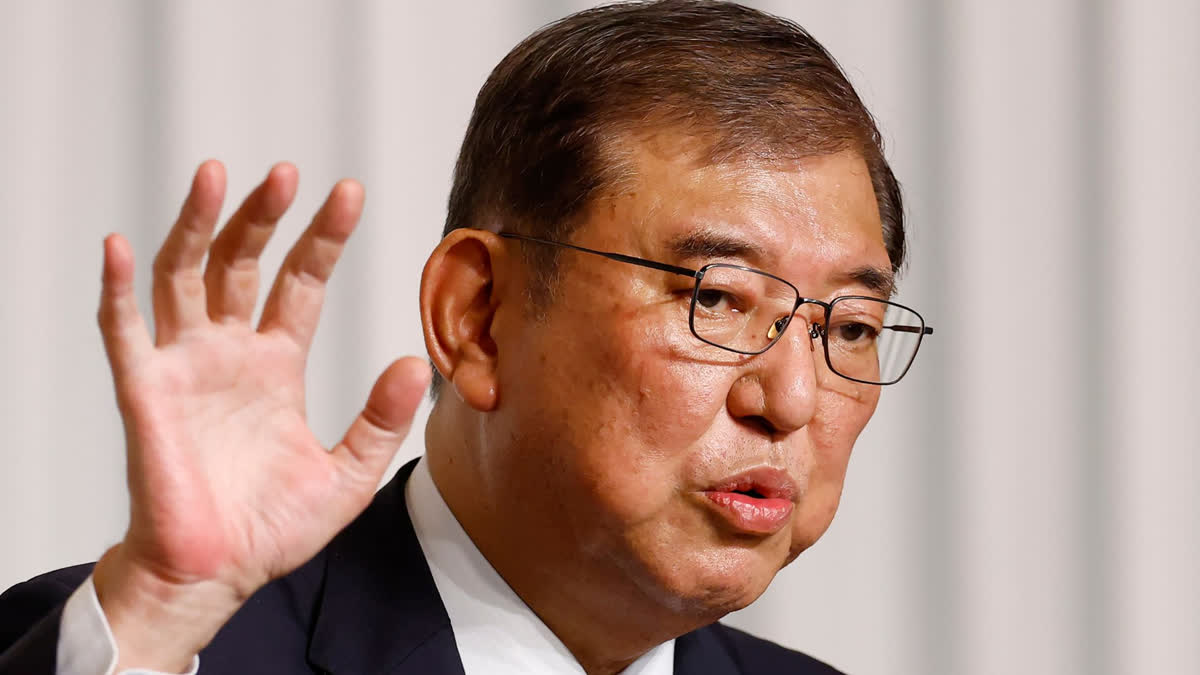New Delhi: With former Defence Minister Shigeru Ishiba winning the presidential election of Japan’s ruling Liberal Democratic Party (LDP) and set to become the Prime Minister of the Asian major power, New Delhi will have reasons to be glad.
Ishiba will succeed Fumio Kishida who decided not to contest the LDP presidential poll, the winner of which becomes the prime minister as the party is in power.
Ishiba was born into a political family, with his father, Jiro Ishiba, serving as Governor of Tottori Prefecture from 1958 to 1974 before later becoming the Minister for Home Affairs. After graduating from Keio University, Ishiba worked in finance before entering politics after his father’s death.
Ishiba was elected to the House of Representatives at the 1986 general election as a member of the LDP at the age of 33, which made him the youngest member of the National Diet at the time. Ishiba, as a junior Diet member first specialised in agricultural policy before his experiences during the Gulf War in 1990 and a visit to North Korea in 1992 sparked his interest in defence issues. He served as parliamentary vice minister of agriculture under the premiership of Kiichi Miyazawa but left the LDP in 1993 to join the Japan Renewal Party. After transitioning through several parties and returning to the LDP in 1997, Ishiba held various prominent positions, including Director-General of the Defence Agency and Minister of Defence under Prime Minister Yasuo Fukuda and Minister of Agriculture, Forestry and Fisheries under Taro Aso.
Ishiba became a key figure within the LDP, running for party leadership multiple times. He ran for the post first in 2008 where he placed fifth, and later notably against Shinzo Abe in 2012 and 2018. Despite his criticisms of factionalism, he established his own faction, Suigetsukai, in 2015, aiming for leadership. After Abe’s resignation, Ishiba ran in 2020 but placed third behind Yoshihide Suga. He declined to run in the 2021 election but ran for the fifth and final time this year where he beat opponent Sanae Takaichi in a second round run-off, becoming the new party leader and prime minister designate.
Ishiba becoming the Prime Minister of Japan bodes well for India, experts believe. India and Japan share ‘Special Strategic and Global Partnership’. Japan is one of only two countries with which India holds annual bilateral summits, the other being Russia. Both India and Japan are part of the Quadrilateral Security Dialogue, commonly known as the Quad that seeks to ensure a free and open Indo-Pacific in the face of China’s belligerence in the region that stretches from the east coast of Japan to the east coast of Africa.
Ishiba is recognised for his strong stance on national defence, advocating for Japan to have a more active security policy while remaining within the boundaries of its pacifist constitution. He has been a consistent proponent of Japan’s right to collective self-defence and has supported reforms to enhance the capabilities of the Japan Self-Defence Forces (JSDF). His pragmatic approach to defence has made him a key figure in debates surrounding Japan’s military posture and its role in regional security dynamics.
According to K Yhome, Fellow at the Shillong-based think tank Asian Confluence and an expert on issues related to the Indo-Pacific, from whatever one knows about Ishida’s political, defence and diplomatic orientation, his becoming Prime Minister of Japan bodes well for India.
“Ishida is person who has a strong sense of strengthening security in the region,” Yhome told ETV Bharat. “We need to assess that with what is happening in the region – China’s growing assertiveness in the Indo-Pacific and North Korea’s nuclear and ballistic ambitions.”
He pointed out that India too has its own challenges with China.
“That will be an area that India-Japan relations will get more synergy,” Yhome said. “There will be a continuity of our bilateral relations.”
Ishiba’s ties with India stem primarily from his role as Japan’s Defence Minister and his broader engagement with security and defence policies in the Asia-Pacific region. His tenure in defence came during a time when Japan and India were deepening their strategic partnership, especially in the context of balancing China’s growing influence in the region.
